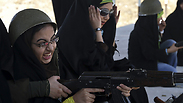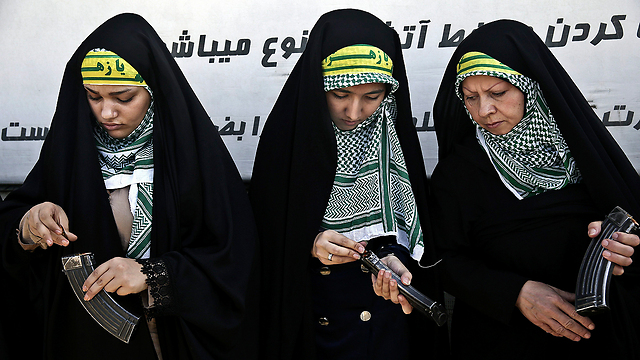
In Iran, Basij paramilitary holds sway
Paramilitary Basij volunteer corps, part of Iran's powerful Revolutionary Guard, has ever-increasing influence on life in Iran
Authorities created the Basij, which means mobilization in Persian, just after the country's 1979 Islamic Republic. It is part of Iran's powerful Revolutionary Guard.
Related stories:
- Iran's Revolutionary Guards committed to 'Death to America'
- Iran unveils drone that can reach Israel
- Iran's Revolutionary Guards: Officer's death not assassination
The Basij has its roots as volunteer fighters during the 1980-88 war with Iraq. It then developed as a grass-roots defender of the system — taking on roles such as Islamic morality police at checkpoints and parks or as shock troops busting up pro-reform gatherings or publications. Precise numbers on Basij membership are not published, but some estimates range as high as 1 million or more.
It responds to emergencies like earthquakes and other natural disasters. It also has its influence online as well: The Basij has a group of hackers made up of university teachers, students and clerics that launch attacks on websites of "enemies," a state-backed newspaper reported in 2011. It also monitors social media as well and will begin teaching "drone-hunting" to students.
Basij branches can be found in all governmental bodies, universities and schools. Volunteers often enjoy favorable treatment from the government, particularly in securing jobs in the public sector.
Here's a gallery of images by Associated Press photographer Ebrahim Noroozi showing Basij volunteers training in Iran.











